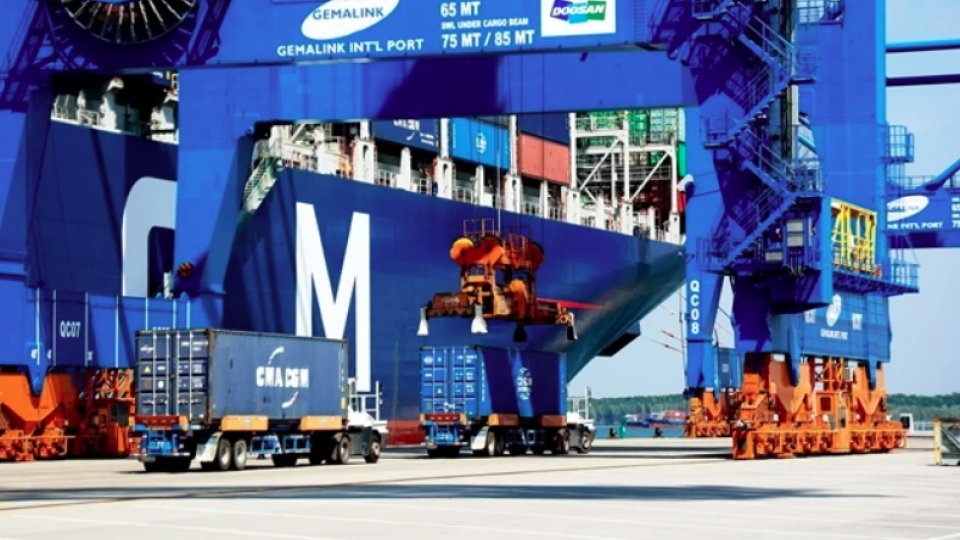Flexible adaptability fuels strong export growth
VOV.VN - Thanks to flexible and adaptive measures in management and production, Vietnam’s export turnover has maintained a solid growth momentum, contributing to the country’s broader economic targets.
According to the General Statistics Office under the Ministry of Finance, Vietnam’s total export value in May 2025 reached US$39.6 billion, up 5.7% from April and 17% year-on-year. In the first five months of 2025, exports totaled US$180.23 billion, an increase of 14% compared to the same period from last year.
In the textile and garment sector, businesses reported stable orders and markets. Pham Van Viet, Chairman of the Board at Viet Thang Jean Co., Ltd, said the company is expediting shipments to the US before July 1. Consumption in Southeast Asia is stronger than in the EU, and the industry is aiming for double-digit growth this year.
Despite facing ongoing global economic uncertainties and weaker demand, enterprises said export performance has improved compared to last year, thanks to product diversification, market expansion, production improvement, and better resource optimization.
In agriculture, forestry, and fisheries, export earnings during the January-May period period hit US$28.04 billion, up 15.1% year-on-year, according to the Ministry of Agriculture and Environment.
Le Duc Huy, Chairman of the Members’ Council at Simexco Daklak, said the company’s coffee exports rose by 60–70% over the five-month period. Export volumes held steady while prices surged, and Vietnamese Robusta continued to be well-regarded in EU markets.
Pushing for greener, higher-value exports
Experts believe export prospects remain positive in the second half of the year, though the global outlook is still clouded by policy uncertainty, trade tensions, and inflation risks.
Le Duc Huy said the company is focused on quality improvement, working closely with supply chains to develop Vietnamese specialty coffee, especially Robusta, to meet rising and more demanding consumer expectations.
In textiles, Pham Van Viet noted that alongside traditional products, his company is expanding into eco-friendly, recycled, and high-value items to strengthen the value chain and reach untapped markets.
Vietnam is now among the world’s top three textile exporters, contributing 9% of the global fashion industry’s value. However, the sector still relies heavily on traditional manufacturing, which limits productivity and competitiveness. Viet called for more concrete government support policies for supporting industries and the development of green, high-tech production.
In the coffee sector, prices have hit a 47-year high since the start of the 2023–2024 harvest. But the industry still lacks a long-term development strategy.
Nguyen Nam Hai, Chairman of the Vietnam Coffee and Cocoa Association (VICOFA), said the sector must embrace reform, restructuring, and science and technology breakthroughs. Innovation and digital transformation, he added, are key to improving productivity, lowering costs, and enhancing competitiveness against global rivals.





